I'm trying to implement Bluetooth FTMS(Fitness Machine).
guard let characteristicData = characteristic.value else { return -1 }
let byteArray = [UInt8](characteristicData)
let nsdataStr = NSData.init(data: (characteristic.value)!)
print("pwrFTMS 2ACC Feature Array:[\(byteArray.count)]\(byteArray) Hex:\(nsdataStr)")
Here is what's returned from the bleno server
PwrFTMS 2ACC Feature Array:[8][2, 64, 0, 0, 8, 32, 0, 0] Hex:{length = 8, bytes = 0x0240000008200000}
Based on the specs, the returned data has 2 characteristics, each of them 4 octet long. I'm having trouble getting the 4 octets split so I can get it converted to binary and get the relevant Bits for decoding.
Part of the problem is the swift will remove the leading zero. Hence, instead of getting 00 00 64 02, I'm getting 642. I tried the below to pad it with leading zero but since it's formatted to a string, I can't convert it to binary using radix:2
let FTMSFeature = String(format: "%02x", byteArray[3]) + String(format: "%02x", byteArray[2]) + String(format: "%02x", byteArray[1]) + String(format: "%02x", byteArray[0])
I've been banging my head on this for an entire day and went thru multiple SO and Google to no avail.
How Can I convert:
From - [HEX] 00 00 40 02
To - [DEC] 16386
To - [BIN] 0100 0000 0000 0010
then I can get to Bit1 = 1 and Bit14 = 1
